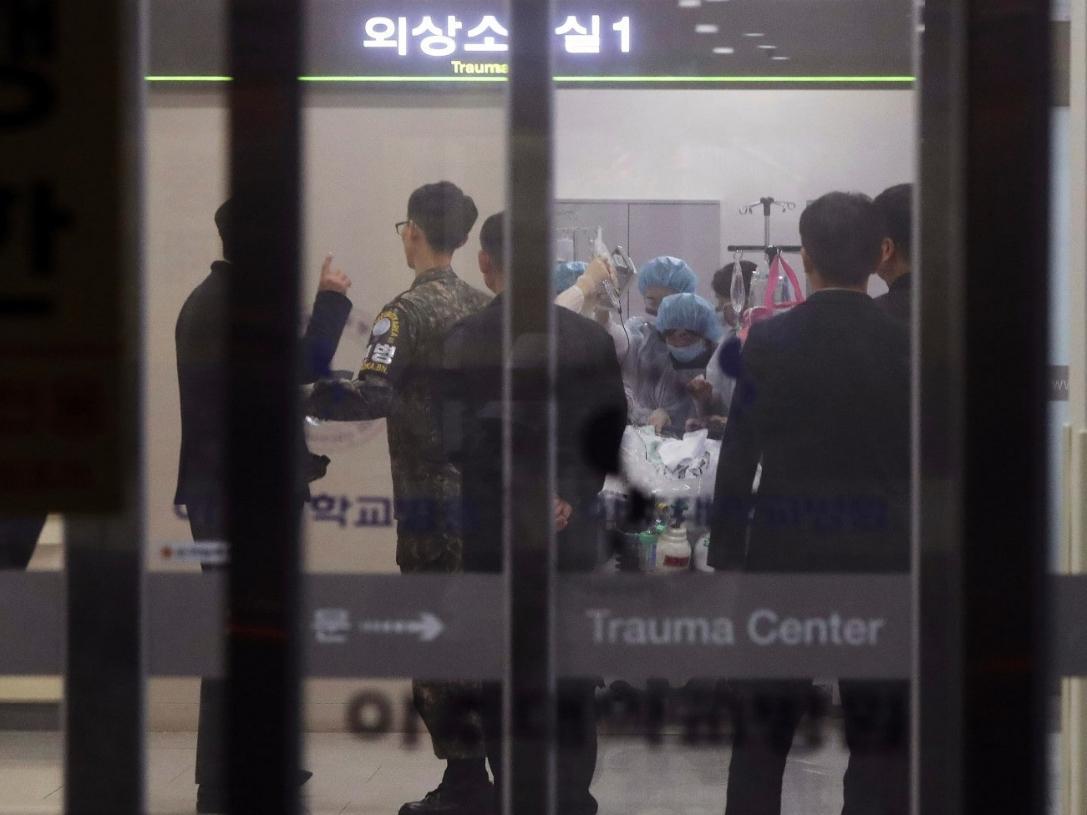North Korean defector's stomach parasites reveal true extent of suffering under Kim Jong-un
South Korean doctors find foot long roundworm in intestines of former soldier

Your support helps us to tell the story
From reproductive rights to climate change to Big Tech, The Independent is on the ground when the story is developing. Whether it's investigating the financials of Elon Musk's pro-Trump PAC or producing our latest documentary, 'The A Word', which shines a light on the American women fighting for reproductive rights, we know how important it is to parse out the facts from the messaging.
At such a critical moment in US history, we need reporters on the ground. Your donation allows us to keep sending journalists to speak to both sides of the story.
The Independent is trusted by Americans across the entire political spectrum. And unlike many other quality news outlets, we choose not to lock Americans out of our reporting and analysis with paywalls. We believe quality journalism should be available to everyone, paid for by those who can afford it.
Your support makes all the difference.The North Korean defector had sped across the demilitarised zone in a stolen jeep, then crawled south as the men who had been his comrades moments ago shot at him with handguns and AK-47 rifles.
South Korean soldiers found the defector under a pile of leaves, bleeding from at least five gunshot wounds.
He was brought to doctors, who expected to find the soldier in bad shape. But what they also found when they opened him up gave the world a glimpse into just how bad things are in North Korea.
Doctors repairing the unidentified soldier's digestive tract found dozens of parasites in his intestines. One of the suspected roundworms was nearly a foot long.
“I spent more than 20 years of experience as a surgeon, but I have not found parasites this big in the intestines of South Koreans,” Lee Cook-jong, who leads the team treating the soldier, told the Associated Press.
Authorities have not released the name or rank of the defecting soldier. He has spent his first days in South Korea unconscious, sedated and relying on a breathing machine to stay alive.
But the worms tweezered from his intestines tell a story of the humanitarian and health crisis gripping North Korea even as it expends significant resources in its effort to become a global nuclear power.
According to News.com.au, North Korea spends 22 percent of its gross domestic product on the military. Other public spending priorities have suffered, as North Korean leader Kim Jong Un has built and tested his nuclear arsenal while also trading radioactive barbs with Western leaders.
A Newsweek headline put it more succinctly - and brutally: “North Korea's Kim Jong-un is starving his people to pay for nuclear weapons.”
According to a report by the United Nations, two of every five people in North Korea are undernourished. Seventy percent of people require food assistance to survive, including 1.3 million children below the age of 5.
And the food they have access to can sicken or kill them. According to The New York Times, many North Koreans who've defected to the South have shown up infected with parasites.
That's partially because North Korea lacks chemical fertiliser, and many farmers rely on human excrement to fertilize fields. As a fertiliser, “night soil” is free and abundant - and even made a cameo appearance in “The Martian.”
But it's notorious for transmitting parasites like the ones inside the North Korean defector's stomach.
In a 2014 study, South Korean doctors checked a sample of 17 female defectors from North Korea and found seven of them infected with parasitic worms, according to the BBC. They also had higher rates of other diseases, including hepatitis B and tuberculosis.
Finding worms inside a soldier who once guarded one of the most scrutinized borders in the world is especially telling, a sign that North Korea's food woes affect military members, who typically have a higher ranking on the food-rationing list. There are even reports that North Korean soldiers have been ordered to steal corn from farmers to stave off hunger.
The soldier's vital signs were stabilising this weekend, the AP reported, but it was still unclear whether he would recover or wake up.
Until then, the parasites taken from his body were the only things telling a story, as Peter Preiser of Singapore's Nanyang Technological University told the BBC.
“What they all do is take nutrients away from your body,” the professor told the BBC. “So (even) if most of them might go unnoticed, they all indicate a poor health status. To put it simply: People who have parasites are not healthy.”
The Washington Post
Join our commenting forum
Join thought-provoking conversations, follow other Independent readers and see their replies
Comments